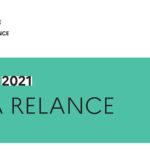By Carine duchemin, Partner
The finance law for 2024 published in the Official Journal on December 30, 2023, is generally under the seal of the restoration of public accounts, with a return below 3% of the deficit scheduled for 2027, and the continuation of reductions in taxes started in 2022, which should lead to a reduction in the compulsory tax rate by more than one point of GDP between 2022 and 2027.
The legislator has mobilized its work on housing taxation and taxation in favor of the energy and environmental transition, major concerns of public policies.
Finally, at the center of debates for several years, the fight against tax fraud continues to be strengthened with the creation of new control tools available to the tax administration.
We present to you these new tax measures and the most notable changes.
Concerning individuals:
No significant measure in terms of income tax is to be noted, apart from the revaluation of the progressive scale, intended to neutralize the effects of inflation on the level of household taxation. The limit of each of the five tranches of the 2023 scale is thus increased by 4,8%.
Putting an end to the differences that have arisen between the tax administration and the administrative judge, the finance law establishes the exclusion of the activity of rental of furnished accommodation to the preferential scheme Dutreil, which exempts 75% of business transfers from transfer taxes.
Regarding the aspect of business transfers, which the legislator wishes to encourage, the registration fee reductions applicable to transfers or donations of business assets and the like or shares of a company in the event of an internal takeover, that is to say when the operation benefits the employees or members of the family of the transferor who continue the operation of the business for at least 5 years, are relieved of €300 to €000.
In terms of succession, the option, considered too “optimizing”, of deducting from the taxable inheritance assets is put an end to the restitution debt of the deceased following the donation, by the latter, of the bare ownership of a sum of money of which he had reserved the usufruct (scheme of quasi-usufruct).
Regarding investment:
In order to erase the differences in treatment, in terms of of IFI, depending on whether the taxable real estate asset is held directly by the taxpayer or through a company, the finance law provides that social debts not linked to the taxable asset can no longer be taken into account for the valuation of shares taxable at the IFI. As a reminder, in the event of direct ownership, the value of the building can be reduced only by debts relating to taxable assets.
The difficulties in the housing market, more than ever in the spotlight with the approach of the Olympic Games, have prompted the legislator to somewhat scale back the attractive taxation of furnished tourist rentals. The system of government micro-BIC of these rentals classified as furnished tourist accommodation is aligned with that of unfurnished rentals falling under the micro-land regime: the eligibility ceiling for said regime is lowered, from €188 to €700 of revenue excluding taxes; the standard deduction deducted from revenue falls from 15% to 000%.
The scheme VAT of the parahotel industry, deemed non-compliant with the VAT Directive, is redefined: a new criterion of length of stay (30 days at most) characterizing the parahotel activity subject to VAT is introduced, cumulatively with the criterion relating to the nature of the services (furnished rental and provision of at least 3 of the following 4 services: breakfast, regular cleaning of premises, supply of household linen and customer reception).
The scheme Art market VAT is also developed: the French legislator extended the reduced rate of 5,5% to all deliveries, imports and intra-community acquisitions of works of art, collector's items or antiques, except application of the margin regime (application in principle of the normal rate). Previously, only the first transaction involving such goods could benefit from a reduced rate (5,5% or 10% depending on the case), while their resales were subject to the normal rate.
Furthermore, the option for the margin regime is removed, as is the flat rate margin regime. The taxpayer automatically subject to the margin regime can opt for taxation on the sale price, in which case the reduced rate applies.
Concerning business taxation:
La Pillar 2 Directive, aimed at combating tax dumping by establishing a global minimum corporate tax rate set at 15%, was transposed in France. This concerns multinational companies whose consolidated turnover exceeds €750 million. The latter will have to pay an additional tax in each country of establishment to the extent that their effective tax rate there is less than 15%.
In terms of transfer pricing, the trigger threshold of the documentary obligation the responsibility of companies is lowered, passing from €400 million to €150 million (turnover or amount of gross assets of the company).
Finally, a presumption of indirect transfer of profits when a difference is noted between the amount of the transfer price practiced by the company and that which should have been reached using the method described in the documentation.
Finally, the minimum fine amount the responsibility of the defaulting company in terms of transfer pricing documentation is increased, passing from €10 to €000.
Le participation product regime is being adjusted again, following a condemnation of French legislation by the Court of Justice of the European Union
Thus, regarding the participation products between companies belonging to the same tax group, the benefit of reduced rate of 1% of the share for costs and charges (QPFC) is now subject to the distribution subsidiary belonging to the integrated group for more than one financial year. No condition on the length of detention was previously imposed, so that the reduced rate applied from the first integration exercise.
The reduced rate of the QPFC was extended to participation products giving entitlement to the parent-daughter regime received from a so-called “integrable” European subsidiary (eligibility for the tax integration regime if it had been resident in France) for the benefit of 'a French company having renounced becoming a member of a tax group with other French companies even though the latter met the conditions. For the record, the waiver of the tax integration regime excluded the benefit of the reduced QPFC rate on parent-daughter dividends received from European companies at least 95% owned. On the other hand and paradoxically, parent-daughter dividends from French companies which have deliberately not been integrated remain subject to a QPFC of 5%, the legislator having, for the moment, not wished to neutralize this reverse discrimination.
The same exclusion applied to participation products not giving entitlement to the mother-daughter plan. From now on, the French company having renounced forming an integration group can deduct from its net profit, up to 99%, the income received from a participation in an “integrable” European company, provided that the conditions for benefit from the group plan have been met for more than one financial year.
The tax incentive system for startups that incur at least 15% of research expenses, known as Young innovative companies (JEI), is arranged. If the status is extended, under conditions, to young companies incurring at least 5% of R&D expenses, the exemption from tax on profits to which eligible companies could be subject is removed. However, the exemption from local taxes and social security contributions is maintained.
Alongside the expansion of the status of young innovative companies, the financing of innovation benefits from a new incentive system: subscribing to the capital of JEIs will give entitlement, within a certain limit, to a tax reduction at the rate of 30% or 50% (depending on the proportion of company's R&D expenditure).
Finally, two measurements are shifted in time:
Initially planned over two years by the finance law for 2023 and promised by the Government to businesses, the elimination of CVAE will ultimately be spread over four years, for a permanent elimination from 2027, budgetary constraints oblige.
La electronic invoicing mandatory is postponed to 1er September 2026 for mid-sized companies and large companies and on 1er September 2027 for SMEs.
In terms of control :
Le automated search for tax offenses based on mass data freely accessible on the websites of online platform operators, hitherto confined to the discovery of hidden activity and non-compliance with tax domiciliation rules, is extended to deliberate underreporting (minorization of tax bases).
The home visits and seizures, allowing the administration to demonstrate fraudulent actions when there are presumptions that a taxpayer is evading the establishment or payment of tax, can now also be authorized when there are presumptions that a taxpayer makes inaccurate statements in order to benefit from tax credits provided for the benefit of businesses.
Also creates a autonomous offense of making available instruments to facilitate tax fraud, penalizing persons who make available to third parties means, services, acts or instruments enabling them to evade their tax obligations.
Carine duchemin
Partner
Within the Tax department, Carine Duchemin works in mergers and acquisitions, in the restructuring of companies and groups. She has an important international activity as adviser to international groups, particularly in the hotel industry. Carine Duchemin also assists companies and their managers with tax audits and litigation.






